Every year, the United Nations celebrates the International Day of Women and Girls in Science. For 2022, the focus is placed on not only recognizing the role women and girls play in STEM as beneficiaries but also as agents of change.
AZoNano aims to share science with the world and with people who can make a difference. Therefore, this year, we are highlighting a selection of women that are driving innovation in the Nanotechnology sector.
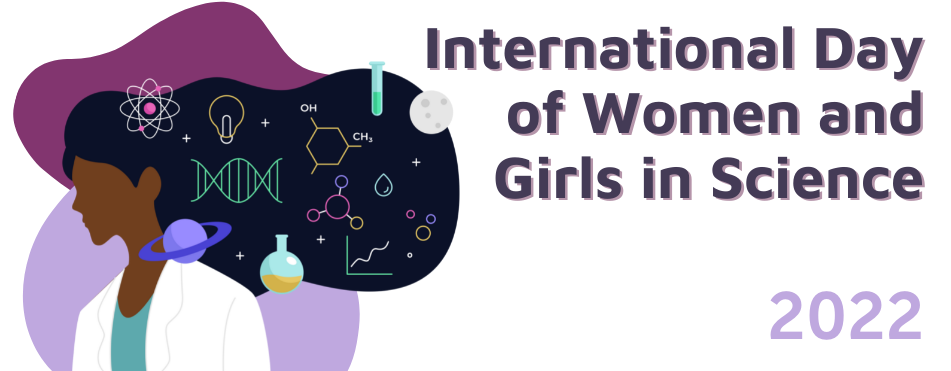
We asked each representative the following questions, exploring how science has shaped their career, their thoughts on the future of the field, and the irreplaceable role of women in STEM.
What inspired you to initially pursue a career in science, and what advice would you give to young women and girls who are looking to start their career within the STEM sector?
Dr. Kiana Aran, Associate Professor in Medical Diagnostics at the Keck Graduate Institute, and co-founder and CSO of Cardea Bio
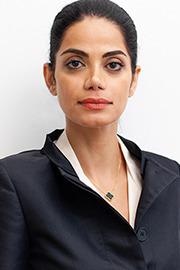 I always had an interest in math and science from a young age and decided to major in electrical engineering in college. Still, I was always fascinated by art and painting human figures, but this never seemed to align with my academic pursuits, such as designing diodes, transistors and electronic tools.
I always had an interest in math and science from a young age and decided to major in electrical engineering in college. Still, I was always fascinated by art and painting human figures, but this never seemed to align with my academic pursuits, such as designing diodes, transistors and electronic tools.
When I was accepted at Cornell University for a nanomaterial and nanoelectronics summer internship, I was introduced to the biological and clinical applications of electronics for the first time.
Today I create engineering solutions to unlock the secrets of human health by combining engineering and biology. Designing electronic tools that allow me to connect with biology is what I enjoy the most now.
For young women and girls looking to start their careers within the sector, I would encourage you to seek out positive mentors who will support your personal and professional growth and development. Do not be afraid to take calculated risks, and take advantage of the opportunities that come your way, as these can be impactful if successful.
Stay resilient; keep larger goals in mind and take proactive steps towards overcoming obstacles that may be in your way.
Explore the scientific interests that you have and build confidence in collaborating with experts in other related fields, and learn how to communicate your work and the science you are engaged in with diverse audiences.
Dr. Claudia Contini, L’Oréal and UNESCO UK Rising Talent Engineering Fellow, Faculty of Engineering, Department of Chemical Engineering, Imperial College London
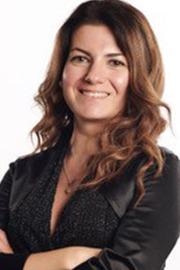 Scientific topics were the only ones that could feed up my thirst for curiosity in finding an explanation for almost everything around me. I was only fourteen years old when she made me aware of the importance of scientific research and how scientific discoveries are pivotal in helping medical doctors, patients, and the entire society in many different ways.
Scientific topics were the only ones that could feed up my thirst for curiosity in finding an explanation for almost everything around me. I was only fourteen years old when she made me aware of the importance of scientific research and how scientific discoveries are pivotal in helping medical doctors, patients, and the entire society in many different ways.
That was the exact moment where I decided to be a scientist, and I could not have made a better choice for myself!
However, my choice has been full of obstacles; I come from a small city on an Italian island where many did not understand my dream and often suggested I follow a standard career instead. A future in the research sector was seen as an unattainable achievement.
My advice to all the young women and girls looking to start their careers in STEM is to always work for your dream career path. Do not let people or society decide for you.
Draw your own unique career path and let your motivation drive you. Find your female role models, and if you cannot find them, it means that you will be one!
Dr. Maria K. Chan, Center for Nanoscale Materials, Northwestern Argonne Institute for Science and Engineering
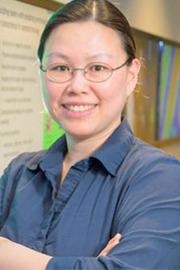 I came from the “outside”. My parents didn’t go to college, and no one I knew before I went to college was a member of the scientific community.
I came from the “outside”. My parents didn’t go to college, and no one I knew before I went to college was a member of the scientific community.
In college, I engaged in discussions and then in research with science professors, which is how I became involved. Later on, I went to graduate school to do further research and get the qualifications to become a scientist.
If you are interested, be persistent! Getting things wrong, failing, and being rejected are routine aspects of doing science. The key is to KEEP. GOING. Lean on those who believe in and support you.
Dr. Ilke Arslan, Division Direction, Center for Nanoscale Materials and the Nanoscience and Technology division at Argonne National Laboratory
 I got a job doing undergraduate research in a faculty member's lab and realized I loved research. I stayed on to do a Ph.D.
I got a job doing undergraduate research in a faculty member's lab and realized I loved research. I stayed on to do a Ph.D.
No one in my family is in a STEM field, or has a Ph.D., so I didn't have guidance either from home or from school as an undergraduate.
It's so important to start getting research experience early. Look for internship opportunities starting in high school, and definitely while an undergraduate. These early experiences and connections you form will help guide you to the right discipline and sub-discipline to pursue your advanced degree and give you a boost into the career of your choice.
Science, as well as gender equality, are both vital in achieving the UN's sustainable development goals, yet women still only represent 33.3% of the global research community. What more can be done to ensure equal access for women and girls in science?
Dr. Kiana Aran, Associate Professor in Medical Diagnostics at the Keck Graduate Institute, and co-founder and CSO of Cardea Bio
I was recently awarded the Nature Research Awards for Inspiring Women in Science for Scientific Achievement in 2021. The Nature Research Awards recognize and celebrate the achievements of women in science, especially those which engage and support young women in STEM.
From the $40,000 prize award, I am starting a new initiative called the “Aran Nebula Foundation”. The Foundation will bridge the gap between academia and industry and address the gender imbalances present in influential and leadership roles.
Other efforts could focus on improving the pipeline for women and girls interested in STEM early in their educational careers, as well as providing and creating STEM-related research fellowships and opportunities for women and girls to help them learn about the pursuit of STEM-related careers and educational opportunities
Organizations and academic institutions could also endeavor to provide mentorship, sponsorship and networking opportunities to improve help improve the skills and expertise that women need to become leaders in influential positions. This includes providing support to take on challenging leadership roles, and encouraging women and girls to attend and interact with STEM professionals at events.
Why Support Women and Girls in Science and Technology?
Why Support Women and Girls in Science and Technology? Video Credit: UN Women/YouTube.com
Dr. Claudia Contini, L’Oréal and UNESCO UK Rising Talent Engineering Fellow
In my opinion, a radical change of culture is required, which unfortunately is taking too long to take place. In a male-dominated environment, masculine qualities are considered the optimal ones to cover leadership positions.
It should be remembered that females also possess many ideal qualities. The absence of female leaders in STEM perpetuates and supports an exclusionary, male-dominated culture that is not attractive to women.
STEM needs more women covering leadership roles to inspire the young female generation and radically change this current culture.
Dr. Maria K. Chan , Center for Nanoscale Materials, Northwestern Argonne Institute for Science and Engineering
We need to do more to encourage young girls to harness their curiosity and talents. Girls-only spaces and programs for K-12 are important avenues because girls are often excluded, overtly or otherwise.
Dr. Ilke Arslan, Division Direction, Center for Nanoscale Materials and the Nanoscience and Technology division at Argonne National Laboratory
My belief is that the issue stems from the pipeline. We need to motivate and mentor more women into the sciences at the high school level, and continue mentorship through undergraduate and graduate school.
As an undergraduate, I was discouraged from pursuing a degree in science by the University because it would "be too hard." We need people saying exactly the opposite to the next generation and helping them along every step of the way.
A nationwide "women-mentoring-women" platform would be superb! I didn't have any female mentorship opportunities available to me when I was doing my degrees.
We have seen some incredible nanotechnology innovations in recent years; are there any particular developments that have stuck with you, and how do you think they will impact the field in the future?
Dr. Kiana Aran, Associate Professor in Medical Diagnostics at the Keck Graduate Institute, and co-founder and CSO of Cardea Bio
Over the past 20 years, many people have been exploring nanotechnology for research and applications in various areas, but few have had widescale commercial applications. A shift is now underway in nanotechnology to not only create next-generation materials, but also to understand how to better utilize the materials that have already been developed.
My work on combining CRISPR with electronic devices, called CRISPR-ChipTM, illustrates how we can combine transistors with CRISPR molecules to scan genomes for genetic sequences of interest without amplification.
The CRISPR-Chip is an advanced yet beautifully elegant combination that intertwines three Nobel Prize-winning revolutionary technologies: CRISPR, graphene, and transistors.
Each of these technologies have made a significant impact in our lives independently. Their combination brings a promise of revolutionizing thousands of markets and applications by providing the backbone for faster and more accurate diagnostics, safer gene editing, and even improvements to the safety of our food industries.
My long-term research vision is to continue developing technologies to improve our understanding of biology and to harness the power of biology and technology to better human life. I am excited to take part in modernizing and designing next-generation electronic devices for biology and medicine and leave behind enabling technologies to empower the next generation of scientists.
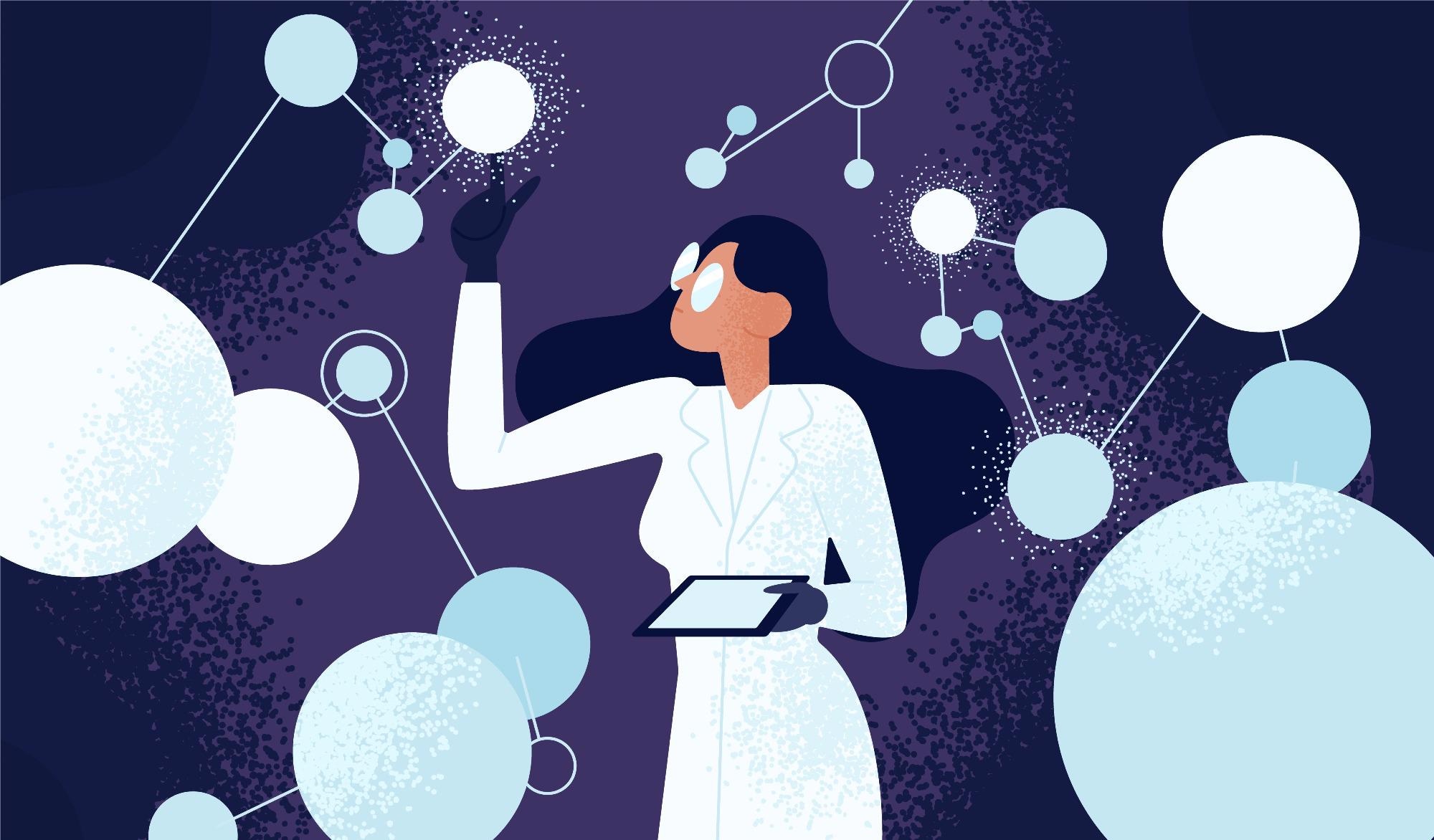
Image Credit: GoodStudio/Shutterstock.com
Dr. Claudia Contini, L’Oréal and UNESCO UK Rising Talent Engineering Fellow
I am continuously fascinated by the progress of bottom-up synthetic biology to construct rudimental artificial cell models (protocells) from scratch.
By using molecular building blocks, it is possible to create compartmentalized structures that resemble the compartmentalization observable in biology at the nano and microscale level and impart to them life-like behaviors such as motility.
Engineering well-defined bespoke synthetic protocells from scratch that exhibit autonomous and directional motion in response to their environment will pave the way for applications of artificial motile protocells in clinical and industrial settings.
For example, synthetic motile systems will allow an intelligent and active delivery of therapeutics directly to a specific target site or the swimming to specific sites that require bioremediation or the generation of artificial tissues and dynamic materials adaptive to their environment.
Dr. Maria K. Chan, Center for Nanoscale Materials, Northwestern Argonne Institute for Science and Engineering
I’m especially excited about our ability to “see” how atoms are arranged and design materials through a combination of computational modeling, powerful x-ray and electron microscopes, and artificial intelligence.
Dr. Ilke Arslan, Division Direction, Center for Nanoscale Materials and the Nanoscience and Technology division at Argonne National Laboratory
My particular field is nanoscience, and I have been most impressed recently by how advances in machine learning (ML) and artificial intelligence (AI) have started to affect the way we do science.
We can use AI/ML to process the data we get out of our experiments much more effectively. In fact, we can get more out of our data than we ever could before!
In the next ten years, I am excited about the concept of autonomous labs, meaning we will have "robots" combined with AI/ML helping us accelerate scientific discovery; this will be a game-changer.
Banner image courtesy of AZoNetwork with material from plataa/Shutterstock.com
Disclaimer: The views expressed here are those of the interviewee and do not necessarily represent the views of AZoM.com Limited (T/A) AZoNetwork, the owner and operator of this website. This disclaimer forms part of the Terms and Conditions of use of this website.